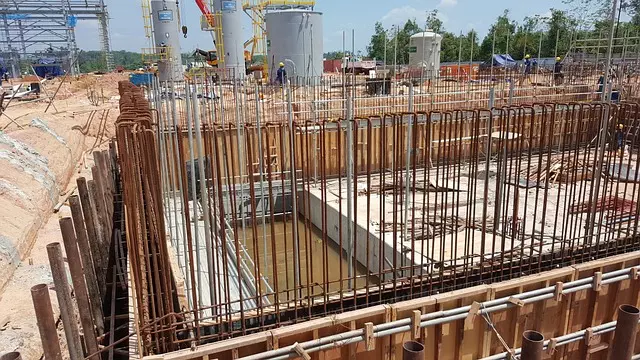Regular comprehensive Foundation Inspections are key to safeguarding homes, identifying potential issues like cracks, settlement, and water damage early. Performed by professionals, these inspections empower homeowners to take proactive measures, preventing minor problems from becoming costly repairs. By addressing foundation concerns promptly and strategically enhancing foundations when needed, owners can ensure long-term stability and extend their home's lifespan, especially in regions prone to environmental volatility.
Protecting your home’s foundation is vital for long-term stability and structural integrity. This comprehensive guide explores the essential aspects of ensuring a robust foundation, from regular foundation inspection to advanced future-proofing techniques. Discover common signs of damage, learn prevention strategies, and understand the impact of various repair options. By implementing these measures, you’ll safeguard your property investment for years to come, emphasizing the critical role of foundation inspection in maintaining a solid foundation.
Understanding Long-Term Foundation Protection

Long-term foundation protection begins with a comprehensive understanding of your home’s structural integrity, starting with a thorough foundation inspection. This critical step involves a detailed assessment of the foundation’s condition, identifying any potential issues or signs of damage that may indicate a need for repair or maintenance. By conducting regular inspections, homeowners can proactively address problems before they escalate, ensuring the longevity and stability of their properties.
A qualified inspector will examine various aspects, including cracks in the foundation walls, uneven floors, and settlement issues. They will also check for water intrusion, as moisture can lead to serious structural damage over time. These inspections provide valuable insights into the foundation’s health, allowing homeowners to make informed decisions about any necessary repairs or precautions to safeguard their investment.
The Role of Regular Foundation Inspection

Regular foundation inspections are a cornerstone of long-term foundation protection. These detailed evaluations by professional inspectors help identify any signs of structural damage, settlement, or movement that could indicate potential problems. By conducting inspections at regular intervals, homeowners and property managers can catch issues early, preventing minor problems from escalating into costly repairs.
During a foundation inspection, experts examine various aspects, including the state of the foundation walls, floors, and ceilings, as well as any visible cracks or unevenness. They also assess external factors like soil conditions, drainage systems, and nearby construction that might impact the foundation’s integrity over time. This proactive approach to maintenance ensures that any problems are addressed promptly, safeguarding the structural soundness and longevity of the building.
Common Signs of Foundation Damage

Many signs can indicate potential foundation damage, which is why a regular foundation inspection is crucial for homeowners. One of the most visible signs to look out for is cracks in the foundation walls or floor. These cracks might appear as hairline fractures or wider gaps and can be a result of shifting soil, structural issues, or even water intrusion. Another common symptom is an uneven or slanted floor, which could indicate a more severe problem. You may notice doors or windows that stick or do not close properly, suggesting that the framework has shifted over time.
Unusual smells, like musty odors, can also signal foundation issues as moisture infiltrates the home’s interior. Additionally, visible water stains on walls or ceilings, especially around windows and doors, might be a sign of seeping water, which could lead to further structural damage if left unchecked. Keep an eye out for these indicators, as they could indicate a need for professional intervention during your foundation inspection.
Prevention Strategies for Strong Foundations

Preventive measures are key to ensuring a building’s foundation remains robust and secure over time. Regular, thorough foundation inspections play a pivotal role in this strategy. By employing advanced technology and expert eyes, professionals can identify even subtle signs of damage or potential issues early on. This proactive approach allows for timely repairs, preventing minor problems from escalating into costly and structurally damaging disasters.
Additionally, implementing structural enhancements like underpinning, piering, or wall anchors can fortify existing foundations. These methods address specific challenges such as settling, shifting soils, or uneven loads, providing long-term stability and peace of mind. Regular maintenance and inspection schedules, coupled with these strategic interventions, are the cornerstones of safeguarding a building’s foundation against the test of time.
Repair Options and Their Impact

When considering long-term foundation protection, understanding repair options and their impact is crucial. The first step in any repair process starts with a comprehensive foundation inspection. This involves assessing the extent of damage, identifying weak spots, and determining the root causes behind structural issues. During an inspection, professionals look for cracks, inclines, or shifts in the foundation, which can signal various problems like settlement, water damage, or poor initial construction.
Each repair option has its own impact on the foundation’s longevity. Some common approaches include underpinning, where additional support is added to stabilize the existing foundation, and foundation replacement, which involves removing and replacing sections of the foundation. The choice between these options depends on factors like the severity of damage, cost implications, and desired long-term stability. Regular foundation inspections allow homeowners to address issues early, preventing minor problems from escalating into costly repairs down the line.
Future-Proofing Your Home's Foundation

In today’s world, where environmental changes and natural disasters are becoming increasingly unpredictable, future-proofing your home’s foundation is no longer an option but a necessity. A thorough Foundation Inspection is the first step towards ensuring your home’s structural integrity and longevity. Professional inspectors can identify potential issues like settlement cracks, uneven floors, or moisture intrusion, which are common signs of foundational problems. By addressing these issues early, you can prevent more severe damage and costly repairs in the future.
Regular maintenance and monitoring are key to protecting your home’s foundation. This includes keeping an eye out for any changes in the land around your property, such as shifting soil or changes in water tables, which could impact the stability of your foundation. Additionally, maintaining proper drainage around your house, managing moisture levels, and considering retrofitting or strengthening measures if needed, are all effective strategies to safeguard your home’s foundational integrity over the long term.



